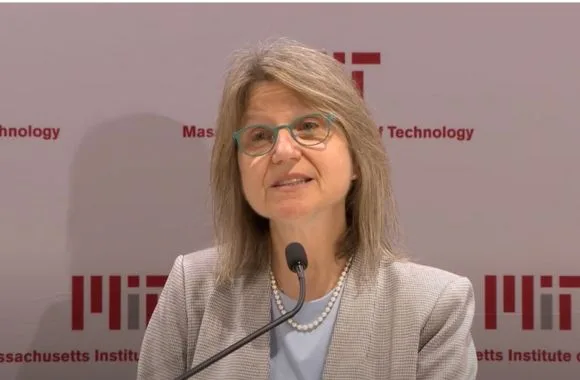Key Takeaways
The Massachusetts Institute of Technology rejected the Trump administration’s reform agreement Friday, citing concerns about academic freedom.
In a letter to U.S. Education Secretary Linda McMahon, MIT President Sally Kornbluth said that the school disagrees with portions of the document that could “restrict freedom of expression” or undermine the university’s independence.
The president also rejected the compact’s underlying premise, saying it conflicts with MIT’s core belief that scientific funding must be based solely on merit.
“In our view, America’s leadership in science and innovation depends on independent thinking and open competition for excellence. In that free marketplace of ideas, the people of MIT gladly compete with the very best, without preferences,” she wrote.
“Therefore, with respect, we cannot support the proposed approach to addressing the issues facing higher education.”
Kornbluth also highlighted MIT’s longstanding commitment to need-blind financial aid, free expression, and scientific excellence, stating these values already meet or exceed the compact’s standards.
Despite opting out of the compact, Kornbluth affirmed the value of the partnership between MIT and the U.S. government, which “has delivered extraordinary benefits for the American people.”
“We continue to believe in the power of this partnership to serve the nation,” she wrote.
The Trump administration’s “Compact for Academic Excellence in Higher Education” offers preferential treatment for federal funding to schools that enact several reforms.
These reforms include a five-year tuition freeze, forbidding the use of race or sex in hiring and admissions, institutional neutrality, limiting foreign enrollment to 15 percent, and adopting the traditional definition of male and female, among other provisions, The College Fix previously reported.
The compact also asks universities to promote a “vibrant marketplace of ideas,” prohibit employees from making political statements on behalf of their institutions, and foster a more welcoming environment for conservatives by reforming governance and eliminating departments that discriminate against or attack conservative viewpoints.
The deal has been offered to Vanderbilt University, Dartmouth College, University of Pennsylvania, University of Southern California, MIT, University of Texas at Austin, University of Arizona, Brown University and University of Virginia.
MIT is the first to reject the deal. Dartmouth might be next.
In a short message to the campus community addressing the compact last week, Dartmouth President Sian Leah Beilock stated she “will always defend” the school’s “fierce independence.”
“You have often heard me say that higher education is not perfect and that we can do better,” Beilock stated. “At the same time, we will never compromise our academic freedom and our ability to govern ourselves.”
MORE: ‘The system is broken’ Why Trump’s university ‘compact’ is needed to fix higher ed: op-ed

